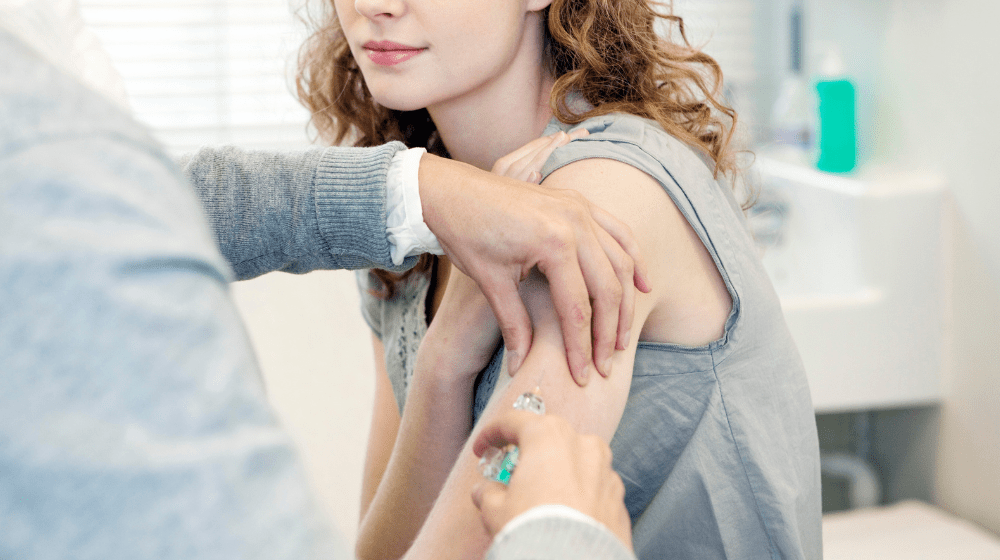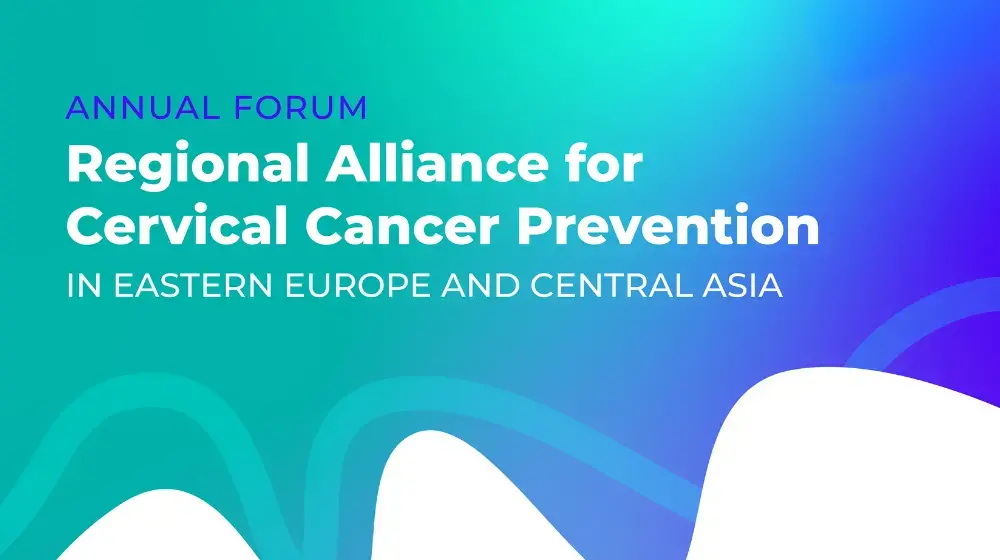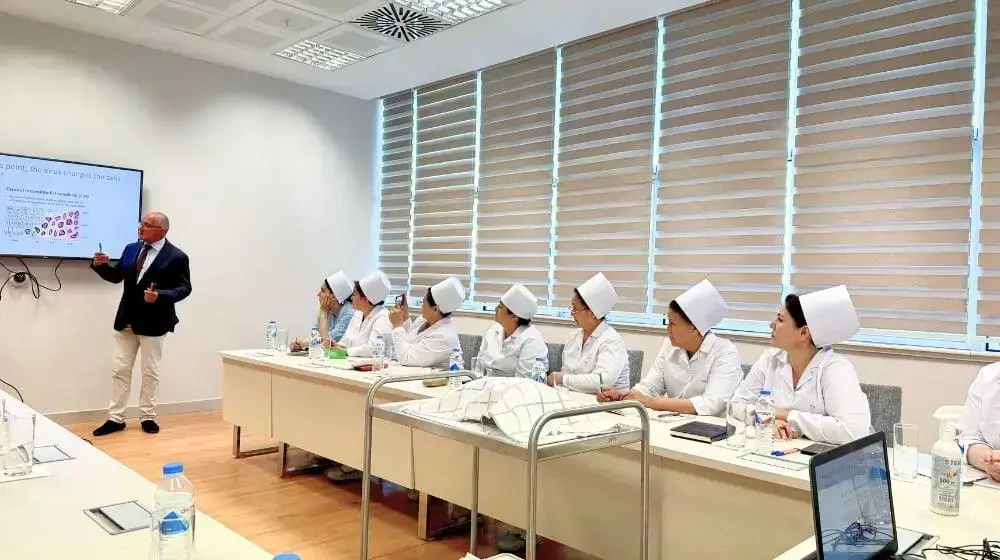SKOPJE, North Macedonia – Fifteen years after the human papillomavirus (HPV) vaccine was incorporated into the regular schedule of immunizations, North Macedonia in April expanded its HPV vaccination programme to make a new type of the vaccine available free of charge for both girls and boys up to 19 years of age.
North Macedonia’s Minister of Health Dr. Ilir Demiri made the announcement at a joint press conference alongside representatives from UNFPA, UNICEF and the World Health Organization. He noted that the country would be switching from a quadri-valent vaccine to a nine-valent one.
This updated HPV vaccine provides long-term multi-year protection against more types of the human papillomavirus as well as the development of pre-cancerous lesions. Vaccinating boys as well as girls not only prevents the transmission of HPV but also reduces the burden of other diseases associated with the virus. It will be available for girls and boys over the age of 19, but they will have to cover the costs themselves.
"With this, we are following the example of highly developed European health systems and providing greater protection for the young population from HPV viruses,” said the health minister. “The nine-valent HPV vaccine is from a world-renowned manufacturer, MSD from the Netherlands, and meets the highest criteria for quality, safety, and efficacy.”
UNFPA in North Macedonia has been active in raising awareness about sexual and reproductive health among the public. In addition to organizing information sessions with cervical cancer experts and supporting the digitization of health care systems to enable more women to self-register for cancer screenings, UNFPA has focused its advocacy efforts on North Macedonia’s youth. It sponsored a series of discussions among high school students on sexual and reproductive health, which included promoting the HPV vaccination as an effective tool to prevent cervical cancer.
Cervical cancer is the second most common cause of cancer death among women in Eastern Europe and Central Asia, where it is associated with enormous personal distress, social disruption and financial costs for women, their families and health systems. Every year, there are more than 38,000 new cases and 18,000 deaths from cervical cancer in the region, representing rates up to 10 times higher than in Western Europe.
A key reason to prioritise cervical cancer prevention is because it primarily affects younger women, with the majority of cases occurring between 35 and 45 years of age. This is a time when most women are working, caring for their families, or doing both, so the social impact of cervical cancer is greatly increased because it removes mothers from their families and workers from the economy.
Programmes providing free HPV vaccination to adolescents are crucial for reducing the incidence of cervical cancer. In most countries in the region, HPV vaccination is available primarily through private providers, so cost is a barrier, particularly for vulnerable groups. If countries implement well-organized programmes to vaccinate adolescent girls against HPV and screen adult women to identify and treat per-cancerous cervical lesions, almost every case of cervical cancer could be prevented.




